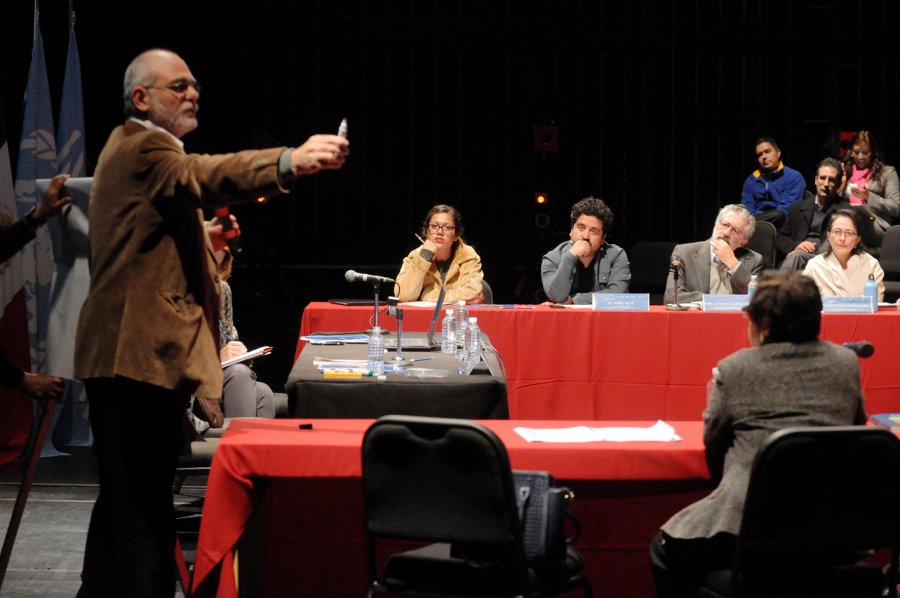Noticias
International Cultural and Human Rights Forum
The Living Culture Community in Brazil program was created to promote and value cultural circuits
November 16, 2016The Brazilian Célio Roberto Turino shared in a masterful lecture during the International Cultural and Human Rights Forum, his experience as secretary of Cultural Citizenship of the Ministry of Culture in Brazil, where he explained the characteristics of the National Program of Artistic Education and Citizenship, Cultura viva Comunitaria (living culture community), Puntos de Cultura (points of culture).
He said that the construction of the Cultura Viva program linked the ideas of emancipation and social protagonism with a government action, which sought to strengthen or identify some point of mediation between life and systems, defining it as a macrosystem settled in points of support.
The power, strength and capacity of all human beings were sought, as well as the mental decolonization, since the perceptions of the world are established in three harmonies: that of itself, with other people and with other beings, he said.
"The Point of Culture is a shared management of the State with society, establishing a challenge with the living culture between the systems of life”, he said.
The Community Cultura Viva Program was created in 2004 with the purpose of promoting and valuing existing cultural circuits through articulation actions and transfer of resources to civil society organizations with cultural actions, called by the program as Puntos de Cultura.
Cultura viva has as one of its assumptions to adopt a shared management in order to establish new parameters of management and democracy between the State and society, and this initiative to involve new and diverse actors in the discussion of cultural policies emerged from the Executive.
"One of the characteristics of the program is to promote the interaction between different organizations with different profiles through networks, whether face-to-face or virtual, meetings, seminars, regional and national forums”, he said.
Célio Roberto Turino commented that the relations between the public and the state, culture and politics, public policies and spaces of autonomous organization of civil society, present in the Cultura viva Program were fundamental to bring the Brazilian experience closer to the reality of other cities and Latin American countries.
He indicated that Cultura Viva Comunitaria is a concept taken to the field of the production and distribution of cultural goods, where experiences from art, education, communication or culture in general, intervene actively in the democratization and development of different territorialities.
Thus, cultural centers, popular libraries, collectives of community theater, visual arts, music, percussion groups, hip-hop, muralism, ancestral cultural practices, digital media, community cinema and television, and other disciplines that obey and are inscribed in solidarity development processes.
The program that was born during Lula da Silva’s administration in Brazil dedicated serious efforts to the task of recognizing and strengthening the community cultural experiences that carried out activities throughout the Brazilian territory, he said.
The Punto de Cultura presupposes autonomy and socio-cultural protagonism that are potentialized by the articulation in network and is expressed with the recognition and legitimation of the cultural making of the communities, generating social empowerment.
Punto de Cultura and the Cultura Viva program were born together and are indissoluble. Puntos de Cultura is more than a public policy under construction: “it is a concept and perhaps a theory”, Roberto Turino said.
Mexico,Distrito Federal
